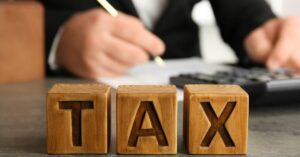
Business Personal Property Tax
What Is Property Tax Valuation?
Property valuation refers to the professional services used to assess and determine the accurate value of business personal property and commercial real estate. These services are essential for businesses and investors seeking to understand the true worth of their assets. By providing expert insights and comprehensive analysis, property valuation services enable businesses to make informed decisions, optimize profits and effectively manage potential risks associated with their properties.
If you’re not familiar with all the ins and outs of property valuation, don’t worry. This guide simplifies the process for commercial real estate, defines key terms, outlines the steps and explains the benefits of commercial real estate valuation service.
How to Determine the Value of a Property
Several approaches can be utilized to determine a commercial real estate property’s value, including comparable market analysis, income approach to value and the cost approach.
To better understand property valuation, here are some commonly used terms:
Market Value is the estimated worth of a property in the current market. It’s determined by location, property size, condition, amenities, income potential and recent comparable sales.
An appraisal is an expert’s assessment of a property’s value based on location, size, condition and recent comparable sales. Licensed professionals conduct appraisals, which are often required by taxing authorities and the judicial system when appealing a property tax assessment.
Comparative Market Analysis (CMA) is a method for determining a property’s worth by comparing its value with similar properties in the market. It involves analyzing recent sales data, today’s market trends and property characteristics to assess a property’s value.
Assessed Value is the local government entity’s assigned value to a property. Assessed values are used to determine property taxes and may not always reflect the market value of a property.
Fair Market Value (FMV) is the price a property would sell between a willing buyer and seller in an open and fair market. Supply, demand, property, location and current market conditions influence FMV.
Depreciation is the decrease in a property’s value over time due to wear and tear, age or outdated features. It’s an important consideration for property owners, as it can affect their overall value.
For instance, a property built 20 years ago may have experienced some depreciation due to aging infrastructure, which could lower its value compared to a newer property.
Capitalization Rate estimates a property’s potential income and value based on its expected return. It is commonly used in commercial property valuation to assess investment opportunities.
For example, a commercial property with an expected annual net income of $50,000 and a capitalization rate of 7% would have an estimated value of approximately $714,285 ($50,000 divided by 0.07).
Highest and Best Use means determining the most profitable use of a property based on market conditions and local zoning regulations. It involves evaluating alternative uses to determine the most financially advantageous option.
A vacant lot in a commercial zone might be more valuable if developed into a retail shopping center than a residential property.
Zoning is the set of local regulations that dictate the approved uses and development guidelines for commercial properties within a designated area. It determines whether a property can be used for residential, commercial, industrial or other purposes.

The Property Tax Valuation Process
Step 1: Collection of Data for Initial Assessment
The first step in property tax valuation involves professional consultants/appraisers gathering relevant information to understand the property’s characteristics, location and prevailing market conditions.
During this phase, they assess the property’s size and condition, considering the number of rooms, amenities and overall appeal. Additionally, they analyze the property’s location, including its proximity to schools, amenities, transportation and the neighborhood’s desirability, all impacting its commercial value.
Step 2: Application of Valuation Models/Methods
Property valuers employ various methods to determine the value of a property. The most commonly used approaches include:
Sales Comparison Approach
The sales comparison approach involves comparing the subject property with recently sold properties with similar characteristics in the same area, considering local market conditions, as part of the appraisal process.
It’s particularly useful for residential properties with many comparable sales available. However, finding genuinely comparable properties can be challenging for unique or specialized properties and may not account for unique features or improvements.
Income Capitalization Approach
The income capitalization approach — often called the income approach — is primarily used for commercial real estate valuation of investment properties. It values the property’s income potential by analyzing its rental income and operating expenses. This method focuses on the property’s income potential, which is critical for investors to evaluate the rate of return on their investments.
However, accurate and reliable rental income data is necessary for an accurate valuation, and it may not be suitable for properties that do not generate rental income or where accurate income data is unavailable.
Cost Approach
The cost approach evaluates the value of properties by considering the cost to rebuild or replace them. It is useful for unique or specialized properties where comparable sales or rental income data may be limited or not applicable. This approach provides an estimate of the property’s value based on the cost of reproducing or replacing it, considering current construction costs and depreciation.
Step 3: Consideration of Influential Factors
Several factors are taken into consideration when valuing a property:
Location and Accessibility
The property’s location is a key determinant of its value. Proximity to amenities, schools, transportation and the neighborhood’s desirability significantly influence its market value.
Size, Layout and Condition
The property’s physical attributes, including square footage, layout, number of rooms and overall condition, play a crucial role in determining its value. Well-maintained properties generally have higher values.
Market Dynamics and Comparable Sales
The overall real estate market trends, including supply and demand dynamics, along with the recent sales prices of similar properties in the area, are crucial in determining the property’s market value. This comparison helps assess how the property stands in its current market environment.
Rental Income Potential
Investment properties have significant potential rental income and cash flow. The property’s ability to generate income is a key factor in its valuation, reflecting its profitability and attractiveness to investors.
Benefits of Property Valuation Services
Property valuation services, led by expert consultants and appraisers, offer numerous advantages regarding commercial real estate property tax assessment. These services are specifically tailored to the unique requirements of commercial properties, ensuring fair and accurate property taxation.
Here are the key benefits:
- Objective and Unbiased Assessment: These services objectively evaluate the value of a commercial property, ensuring fair property tax assessments that reflect its actual market value.
- Compliance with Property Tax Regulations and Support for Property Tax Appeals: Experts in property valuation are well-versed in property tax laws, helping to ensure adherence to all relevant guidelines and minimizing the risk of non-compliance and penalties. Additionally, in the event of a property tax appeal, a professionally conducted valuation report can serve as crucial evidence to support the owner’s case with solid arguments.
- Identifying Property Tax Savings Opportunities and Mitigating Overpayment: Professionals can pinpoint potential property tax savings specific to commercial real estate, such as eligible deductions and exemptions that can lower the property taxable value, thus reducing property tax liabilities. Accurate valuations prevent overpaying property taxes, avoid unnecessary financial burdens and enhance operational efficiency.
- Strategic Financial Planning and Minimizing Assessment Errors: Understanding a property’s value enables owners to make informed financial decisions and optimize property tax-related expenses. Moreover, expertise in evaluating commercial properties minimizes the risk of assessment errors, providing a reliable valuation that reflects the true market value.
Factors to Consider in Choosing the Right Property Tax Service Provider
Experience and Expertise: Property Valuation Services (PVS) boasts 26 years of experience and a solid track record in property valuation. PVS not only holds necessary certifications and accreditations but also provides compelling case studies demonstrating expertise in commercial real estate assessments.
Reputation and Client Feedback: Client testimonials reflect high satisfaction levels and quality service. These references from previous clients and case studies offer insights into our reliability and effectiveness in handling complex property tax issues.
Service Offerings, Specialization and Jurisdiction Coverage: PVS is a national consulting firm specializing in the specific property tax services required for commercial real estate and business personal properties. Our comprehensive property tax and building valuation services are tailored to meet the unique demands of commercial properties across jurisdictions.
Efficiency and Cost: We are proud to meet crucial deadlines and offer competitive pricing structures to ensure you receive timely and cost-effective services. Our ability to efficiently handle your property tax needs helps maintain operational continuity and financial stability.
Property Valuation Services
Property Valuation Services (PVS) specializes in assisting commercial real estate owners achieve their property tax-related goals. We focus on providing comprehensive property tax and building valuation services conducted by commercial property tax professionals who consider all relevant factors specific to commercial properties.
With a deep market knowledge, we offer valuable insights and customized solutions to effectively address your property tax needs. Our property tax reports adhere to industry standards and guidelines, enhancing your credibility with property taxing authorities and regulatory bodies.
PVS values long-term partnerships and prioritizes professionalism. We ensure privacy and data security. You can trust us to uphold confidentiality and integrity throughout the property tax assessment process.
Contact us to benefit from expert property tax advice that optimizes your commercial property value and minimizes your property tax liabilities.

Chip Saam

Property valuation services, led by expert consultants and appraisers, offer numerous advantages regarding commercial real estate property tax assessment. These services are specifically tailored to the unique requirements of commercial properties, ensuring fair and accurate property taxation.




